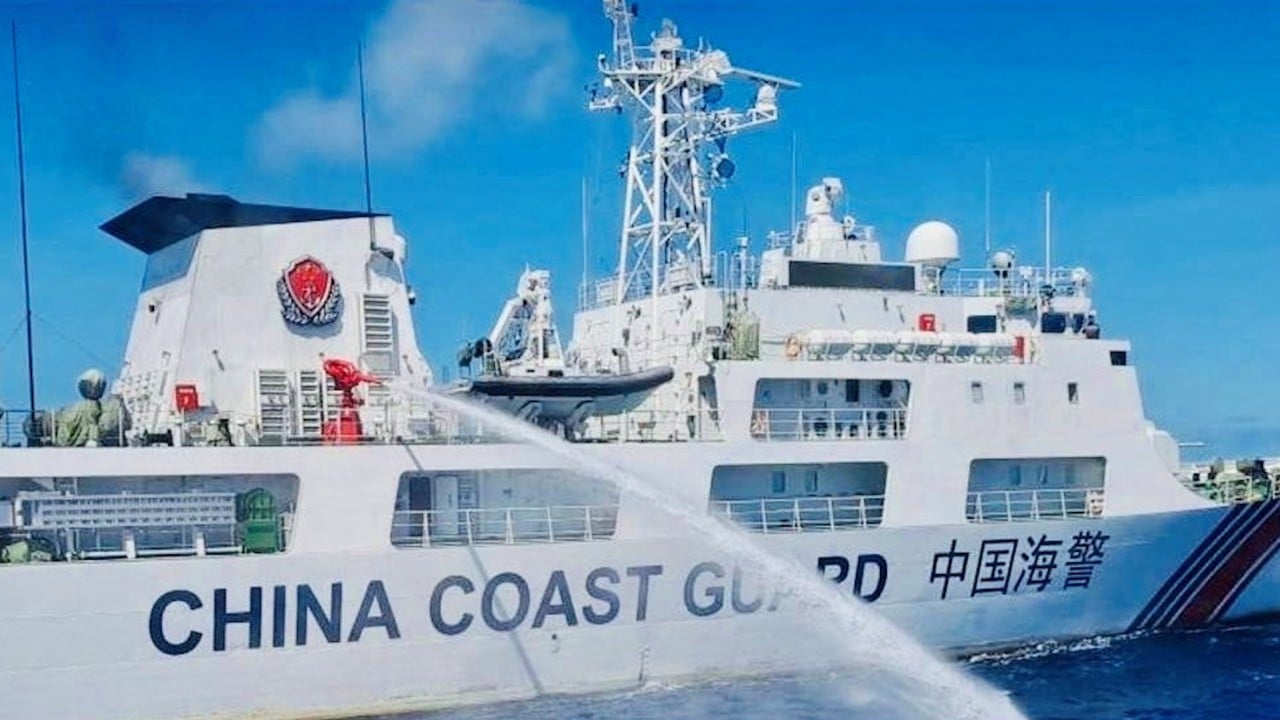
Philippines stockpiling bilateral deals to counter Beijing in South China Sea won’t work
- Talks with Tokyo on a military base reciprocal access agreement are the latest Philippine effort to bolster the forces Manila can rely on to confront China
- However, agreements with Japan and the US would not apply if the Philippines takes aggressive action in the territory of another state
The logic is that the more such bilateral agreements the Philippines has, the more military forces the Philippines can rely on to confront China. However, neither a reciprocal access agreement with Japan nor the 1951 Mutual Defence Treaty (MDT) and Visiting Forces Agreement with the US provide the Philippines with legal tools to provoke China in the South China Sea.
First, since Second Thomas Shoal has never been the Philippines’ territory, the MDT cannot be applied under the territorial jurisdiction principle.
Pursuant to Article I of its 1935 constitution, the Philippines’ territory is defined by a series of international treaties, including the 1898 treaty between the US and Spain (the Treaty of Paris), the 1900 treaty between the US and Spain for the cession of outlying islands of the Philippines (the Treaty of Washington), and the 1930 convention between the UK and the US regarding the boundary between the state of North Borneo and the Philippine archipelago.
In addition, subject-matter jurisdiction also prevents the application of the MDT in this scenario.
Nor could the Visiting Forces Agreement between the US and the Philippines and the agreement to be signed between Japan and the Philippines be used as a legal umbrella to shield the Philippines from escaping accountability when it violates Chinese sovereignty in the South China Sea.
The function of agreements is more often than not to regulate conditions for foreign military deployment in the host state as well as to make jurisdiction arrangements in case foreign forces commit crimes or violate civil laws of the host nation. It has nothing to do with assisting the Philippines when it takes aggressive action in the territory of another state.

Another issue is whether the US would proactively apply the MDT to defend the Philippines even if the latter is not under armed attack. It is not unusual for the US to abuse international law and impose consequences on other countries as it did in the 2003 Iraq War.
If it defends the Philippines even if the latter is not under armed attack, the US would blatantly violate the fundamental principle of international law regarding the prohibition of threat or use of force in international relations. This fundamental principle of international law is not only enshrined in the UN Charter and well established in customary international law, but also constitutes a peremptory norm of general international law.
The US obligation under such a norm prevails over its bilateral obligation under the MDT; the US cannot utilise the latter as justification for its violation of the former. This hierarchy of application of international law is globally well recognised.
International law distinguishes the use of force in international relations from the use of force in law enforcement action, as adjudicated in the Guyana v Suriname case at the Permanent Court of Arbitration.
If the US really wants to be hijacked by the Philippines and abuse the MDT to militarily intervene in such a scenario, China would naturally exercise its inherent right of self-defence under international law. The Philippines should first assess whether the two nuclear powers would allow such an extreme situation to unfold.
In particularly, in the context of the Russia-Ukraine and Palestine-Israel conflicts, as well as the lessons learned in Vietnam, Afghanistan and the Middle East where the US failed to honour its commitment to allies, Philippine President Ferdinand Marcos Jnr must remember that the next time Manila makes irresponsible provocations related to the Second Thomas Shoal, the consequences might be unbearable for his country.
Capt (retd) Tian Shichen is founder and president of the Global Governance Institution, and a China Forum Expert
Huang Zeyi is an intern student at the Global Governance Institution



